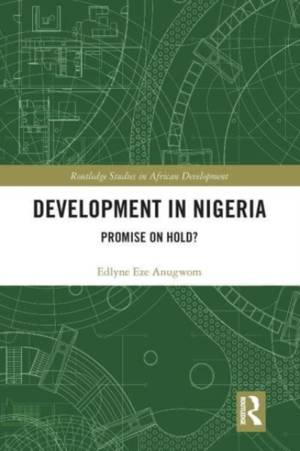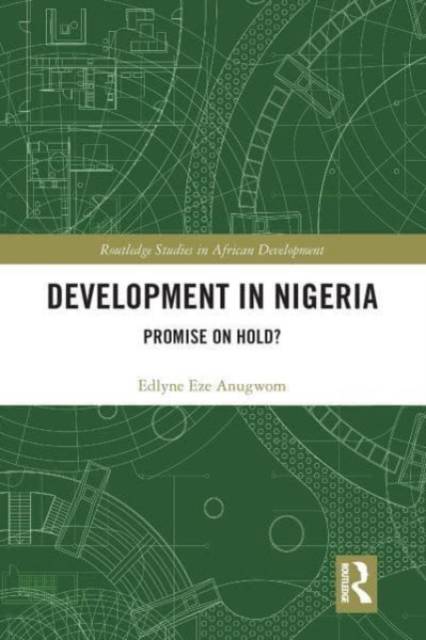
- Retrait gratuit dans votre magasin Club
- 7.000.000 titres dans notre catalogue
- Payer en toute sécurité
- Toujours un magasin près de chez vous
- Retrait gratuit dans votre magasin Club
- 7.000.0000 titres dans notre catalogue
- Payer en toute sécurité
- Toujours un magasin près de chez vous
Description
This book unravels the trajectories and dilemmas of development in Nigeria since its independence in 1960. Despite enormous human and material resources, development progress in Nigeria has not met expectations. By delving into the various factors that have influenced development efforts and initiatives, Development in Nigeria: Promise on Hold? aims to draw out lessons to help the country to achieve its potential.
In many ways Nigeria typifies the African puzzle of near-misses, a never-ending drive towards development with enormous promise but no real practical output. As in many states within Africa, these failures can be traced to structural inadequacies and the perennial weakness of public institutions. Problems which collectively undermine sustainable development and growth include political corruption, ethnicity, failure of public institutions, distributional injustice, fiscal centralism in a purported federal state, faulty democratic traditions, malevolent elite class, religious and social conflicts, among others. By taking a comprehensive panoramic overview of the country's historical experience as both a military dictatorship and democracy, Edlyne Eze Anugwom presents a nuanced, comprehensive and contemporary interrogation of the ever-dynamic forces and factors in Nigeria's development project.
This book's incisive examination of Nigeria's development aspirations over time will be of interest to students of Development and African Studies, as well as to practitioners and multilateral agencies involved in development planning and intervention in Nigeria who are looking for strategies for overcoming the challenges facing the country.
Spécifications
Parties prenantes
- Auteur(s) :
- Editeur:
Contenu
- Nombre de pages :
- 268
- Langue:
- Anglais
- Collection :
Caractéristiques
- EAN:
- 9781032570853
- Date de parution :
- 31-05-23
- Format:
- Livre broché
- Format numérique:
- Trade paperback (VS)
- Dimensions :
- 156 mm x 233 mm
- Poids :
- 419 g

Les avis
Nous publions uniquement les avis qui respectent les conditions requises. Consultez nos conditions pour les avis.






